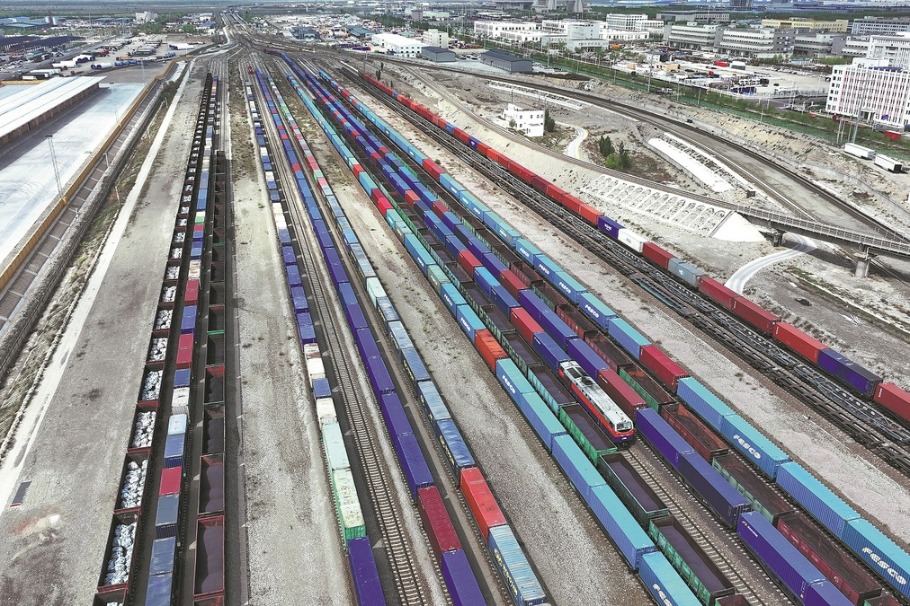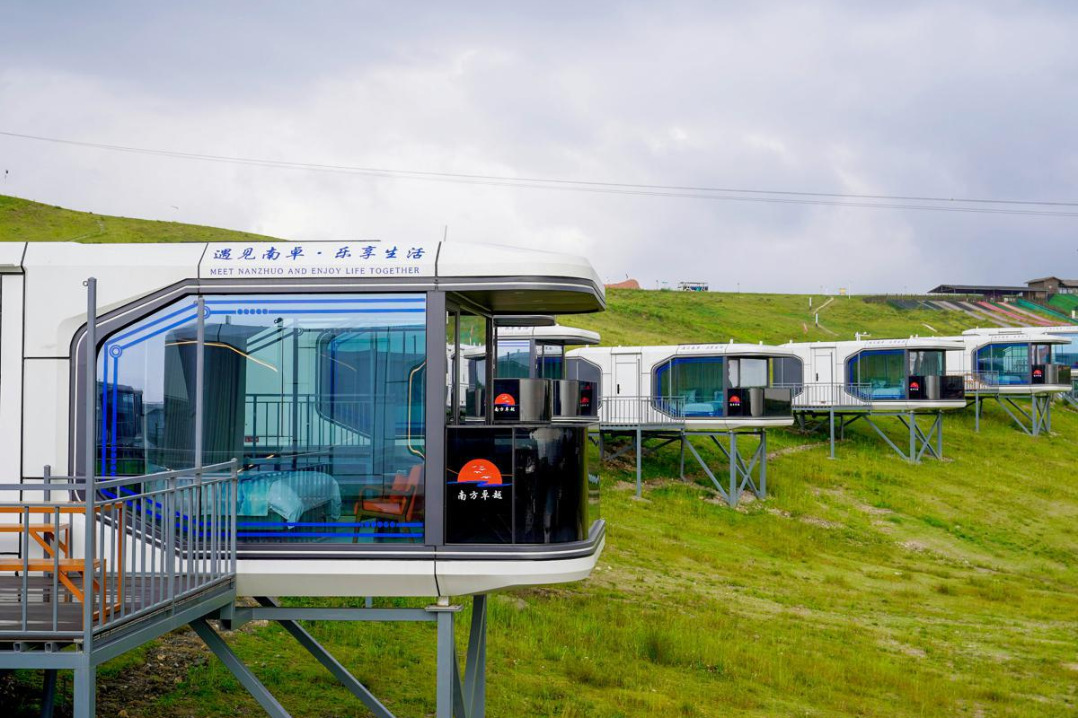Mainland, Macao tap cooperation potential in new sectors


The Chinese mainland has employed an array of measures for further opening up its service sectors to Macao, in line with the shifting development needs of the special administrative region, and for providing businesses on both sides with greater scope for cooperation and growth, analysts said.
By opening up new avenues for Macao businesses, the central government is empowering the city to pursue a more diversified and sustainable development path beyond its traditional strengths in gaming, they added.
The latest step came as the Ministry of Commerce signed amendments with Macao in October to further enhance the liberalization of trade in services under the framework of the Closer Economic Partnership Arrangement.
The mainland and Macao signed the CEPA, an arrangement similar to a free-trade agreement that is established between two separate customs territories of a single sovereign state, in 2003 with the objective of promoting the joint economic prosperity of the mainland and Macao.
At the core of the most recent revision is a comprehensive package of opening-up initiatives aimed at further lowering or eliminating the market entry threshold for Macao-based service providers in a range of industries, including finance, telecommunications and construction.
Some of the measures will be piloted in the Guangdong-Hong Kong-Macao Greater Bay Area to facilitate regional institutional connectivity before putting them into practice across the nation.
The service sector accounts for a significant component of Macao's economic development, which can be achieved effectively within the city's limited land area, said Qi Pengfei, director of Renmin University of China's Taiwan, Hong Kong and Macao research center.
The new steps will bring huge opportunities for Macao enterprises, especially in areas such as finance, entertainment and cultural services, to access the vast mainland market — a critical step in Macao's sustained efforts to diversify its economy, Qi said.
While Macao's booming gaming industry has fueled rapid economic growth and job creation, the outsized influence of the sector might crowd out the development of other sectors, and it limits Macao's overall economic resilience and ability to withstand downturns, Qi added.
According to the plan issued in November last year for Macao's economic diversification from 2024 through 2028, the goal is to increase the share of value-added nongaming activity to about 60 percent by 2028.
In the past, Macao's enterprises in the service sector faced various barriers, such as high market access thresholds and restrictions on business operation duration, when trying to enter the mainland market, said Liang Haiming, chairman of the Hong Kong-based China Silk Road iValley Research Institute.
By tapping into the vast mainland market, Macao's service enterprises can now leverage their unique strengths to cultivate new competitive advantages beyond the traditional pillar industries, Liang added.
As part of the new initiatives, the amendments have outlined various measures to open up the financial sector, one of the new engines of growth for Macao.
Macao's financial services industry has seen a surge in its contribution to the city's overall tax revenue, with its share increasing from around 6.9 percent in 2019 to some 16 percent in 2023 — making it the second-largest source of tax income after the gaming sector, according to the Statistics and Census Service of Macao.
To catalyze the further growth of Macao's financial sector, the amendments have included steps to expand the business scope of Macao-based banks operating on the mainland, and to promote bond market interconnectivity.
For the mainland, the greater access granted to Macao service enterprises will also bring about substantial benefits, said Xu Hongcai, deputy director of the China Association of Policy Science's economic policy committee.
The entry of Macao service providers will introduce advanced management concepts, high-quality service products and innovative business models, helping to upgrade and develop the service industry on the Chinese mainland, Xu added.
- Xi, Tokayev attend ceremony of exchanging cooperation documents
- Zhuhai checkpoints leading to Macao, Hong Kong register 100 million trips
- What the Shenzhou XX astronauts are doing after over 50 days in space
- Beijing-Tianjin-Hebei logistics index hit 52.17% in Q1 of 2025
- Science Talk: Is Red Sun threat rumor or reality?
- 6 remain missing after fireworks factory blast in Hunan, 1 dead





































